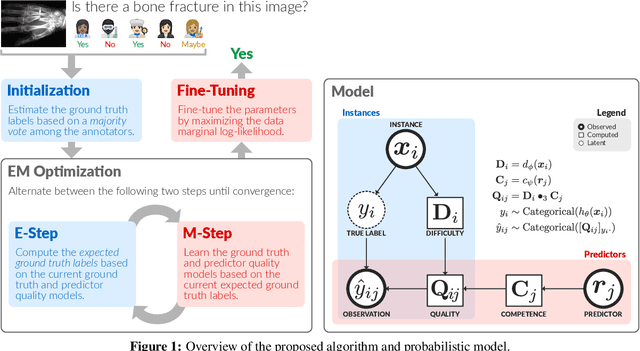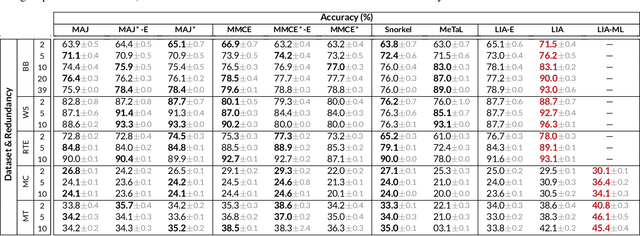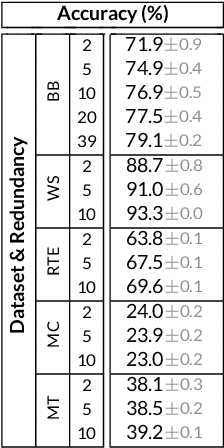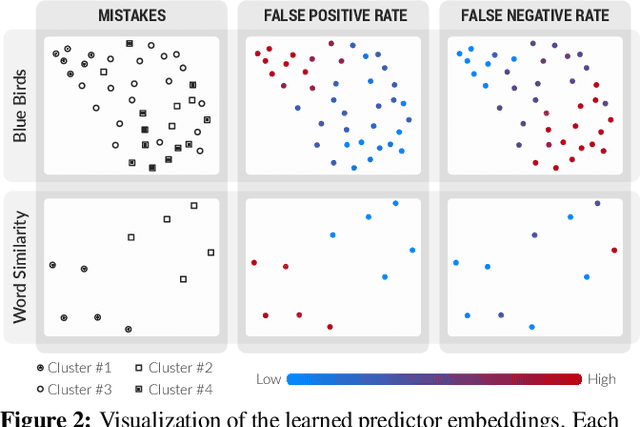Learning from Imperfect Annotations
Paper and Code
Apr 07, 2020



Many machine learning systems today are trained on large amounts of human-annotated data. Data annotation tasks that require a high level of competency make data acquisition expensive, while the resulting labels are often subjective, inconsistent, and may contain a variety of human biases. To improve the data quality, practitioners often need to collect multiple annotations per example and aggregate them before training models. Such a multi-stage approach results in redundant annotations and may often produce imperfect "ground truth" that may limit the potential of training accurate machine learning models. We propose a new end-to-end framework that enables us to: (i) merge the aggregation step with model training, thus allowing deep learning systems to learn to predict ground truth estimates directly from the available data, and (ii) model difficulties of examples and learn representations of the annotators that allow us to estimate and take into account their competencies. Our approach is general and has many applications, including training more accurate models on crowdsourced data, ensemble learning, as well as classifier accuracy estimation from unlabeled data. We conduct an extensive experimental evaluation of our method on 5 crowdsourcing datasets of varied difficulty and show accuracy gains of up to 25% over the current state-of-the-art approaches for aggregating annotations, as well as significant reductions in the required annotation redundancy.
 Add to Chrome
Add to Chrome Add to Firefox
Add to Firefox Add to Edge
Add to Edge